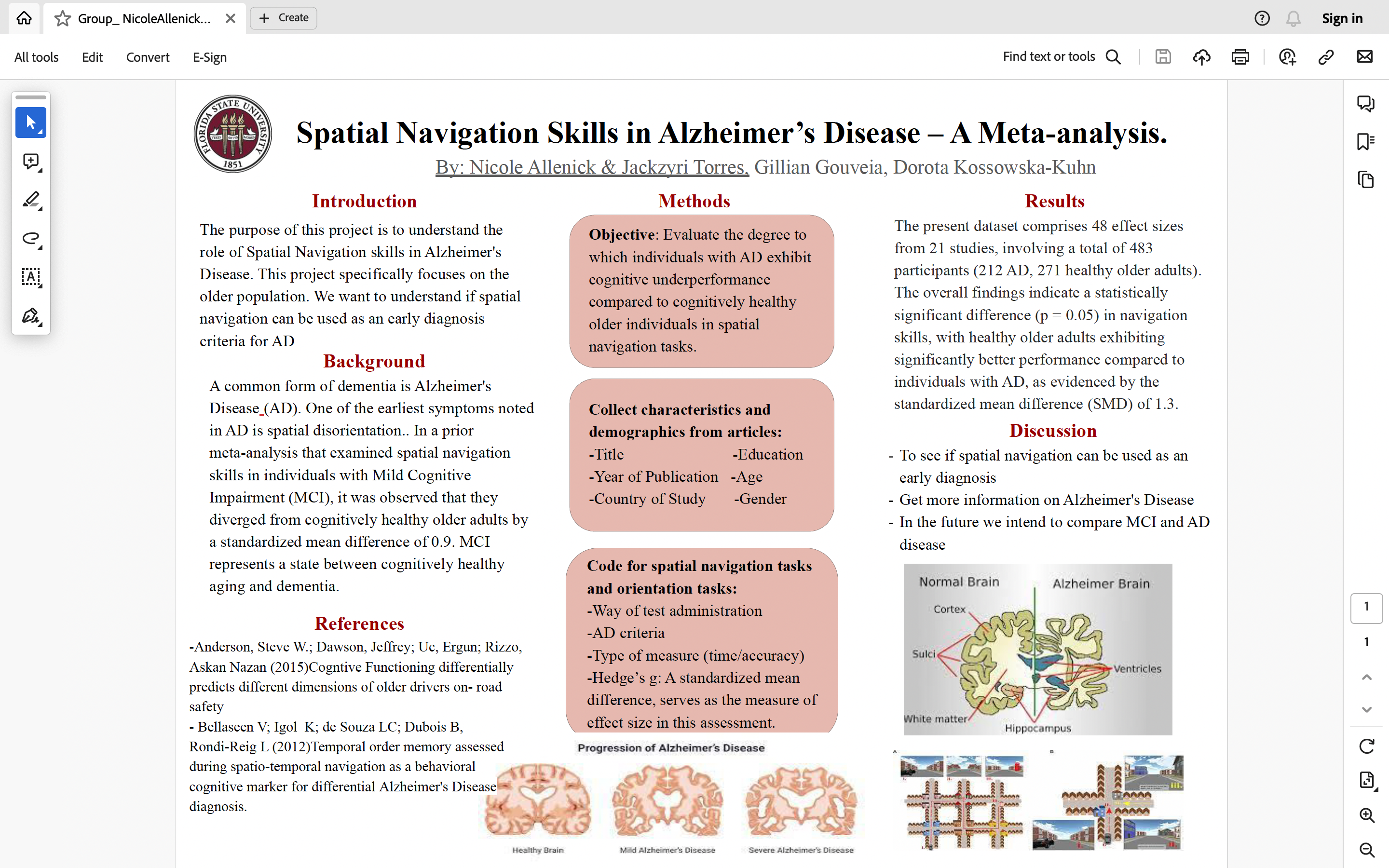Research Symposium
24th annual Undergraduate Research Symposium, April 3, 2024
Nicole Allenick Poster Session 2: 10:45 am - 11:45 am/14
BIO
I am a junior here from Pembroke Pines Florida. I am currently very interested in working with either an older population or a younger population in the future. Right now I am very interested in Alzheimer's disease and how we can help those who are diagnosed with it. I am also very interested in working with kids specifically those diagnosed with ADHD or ASD. In the future, I hope to become a clinical psychologist specializing in neuropsychology. Working with both populations has given me a lot of interest in working in the neurosciences. I want to be able to help those who are diagnosed with a disease. I also am currently working as a registered behavior technician with kids diagnosed with ASD who are 2-7 years old applying ABA practices.
Spatial Navigation Skills in Alzheimer's Disease- A Meta-Analysis
Authors: Nicole Allenick, Dorota Kossowska-KuhnStudent Major: Psychology and Sociology
Mentor: Dorota Kossowska-Kuhn
Mentor's Department: Psychology Mentor's College: Florida State University Co-Presenters: Jackzyri Torres
Abstract
Dementia greatly impacts various individuals. A common form of dementia is Alzheimer's Disease (AD). One of the earliest symptoms noted in AD is spatial disorientation. Spatial disorientation occurs when an individual cannot determine their accurate body position, altitude, and motion in relation to their surroundings. In a prior meta-analysis that examined spatial navigation skills in individuals with Mild Cognitive Impairment (MCI), it was observed that they diverged from cognitively healthy older adults by a standardized mean difference of 0.9. MCI represents a state between cognitively healthy aging and dementia.
In this meta-analysis, the objective is to evaluate the degree to which individuals with AD exhibit cognitive underperformance compared to cognitively healthy older individuals in spatial navigation tasks. Hedge’s g, a standardized mean difference, serves as the measure of effect size in this assessment. Notably, characteristics of articles such as title, year of publication, country of study, and authors are considered along with demographic variables (education, age, and gender), way of test administration (real-world, virtual reality), AD criteria, and type of measure (time/accuracy).
The present dataset comprises 48 effect sizes from 21 studies, involving a total of 483 participants (212 AD, 271 healthy older adults). The overall findings indicate a statistically significant difference (p = 0.05) in navigation skills, with healthy older adults exhibiting significantly better performance compared to individuals with AD, as evidenced by the standardized mean difference (SMD) of 1.3.
Keywords: Alzheimers Disease, Spatial navigation, meta-analysis

